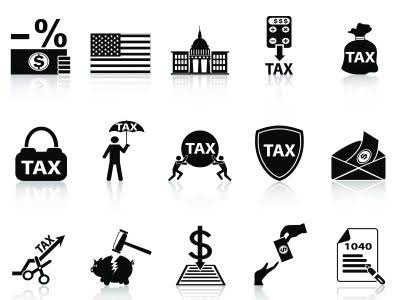03 Mai 6 Bookkeeping Franchise Opportunities for Number-Crunchers

Although bookkeeping is an investment, it’s generally much more affordable than attempting to correct costly mistakes down the road. Whether you’ve started a small business or are self-employed, bring your work to life with our helpful advice, tips and strategies. If you’re unfamiliar with local and federal tax codes, doing your own bookkeeping may prove challenging. On the other hand, if you have in-depth tax and finance knowledge beyond the bookkeeping basics, you may be able to get the job done. Now that you have a better understanding of bookkeeping, you may be wondering if it’s something you want to take on yourself or with the help of a professional. When making this decision, there are two things you should keep in mind.
That, in turn, makes it easier to resolve disputes or misunderstandings or to avoid them in the first place. Franchisees can get started with accounting on their own, but hiring a professional accountant is often a good idea. Doing so can help franchise owners avoid mistakes, get their business started right, stay aware of risks, and save time so they can focus on other aspects of their business. The ideal candidate for this role should possess a foundational understanding of accounting principles and practices and familiarity with QBO or Xero accounting software. This individual pays attention to details, is proactive in understanding financial statements, and is willing to expand their knowledge further. A problem-solver at heart, the candidate quickly seeks assistance when needed and leverages technology to enhance efficiency and adaptability.
Why Consider Investing in a Bookkeeping Franchise?
In this model, the franchisor assists the franchisee in setting up an accounting system that meets the specific needs of the territory, including managing costs, revenue, and taxes. Before diving into the different bookkeeping for franchisees models and best practices, it’s important to understand key terms and concepts related to franchise accounting. These include revenue recognition, cost of goods sold, inventory management, and financial reporting.
This lack of transparency can create mistrust between your brand and the prospective franchisee and ultimately cost the sale. Knowing what Item 19 is and why it is vital before investing in a franchise can protect franchisees from investing in a brand that may not yield the income or success they expected. You became a franchisor to create a model to scale effectively and the opportunity to watch your brand reach new heights. Even after a franchise location is built and operational, you need to continue supporting their locations through ongoing brand support, typically at the national or regional level. In fact, this is one of the major advantages of buying a franchise — immediate access to an established brand versus having to start one from scratch. If you don’t have an accounting background, then chances are you’ll want to hire a professional accountant.
The Unique Challenges of Franchise Bookkeeping
This habit improves communication, boosts transparency with your bookkeeping team, and promotes longevity and compliance. Bookkeeping beginners need quick wins to get started quickly and efficiently. The tips below are industry standards that will help any small business excel at bookkeeping. We provide third-party links as a convenience and for informational purposes only.
Get More Franchise Information
By staying up to date with your bookkeeping throughout the year, you can help alleviate some of the stress that comes with filing your taxes. Your franchisees will have your standard Chart of Accounts implemented, providing consistency and confidence in the numbers for you and your franchisees. We use encrypted communication and secure cloud-based software to safeguard your financial information. Join over 1 million businesses scanning & organizing receipts, creating expense reports and more—with Shoeboxed.
- Franchising is a popular business model that allows entrepreneurs to start their own business under an established brand name.
- As a Franchisor, you’ll receive anonymized insights and trends of the financial performance related to your franchise community, unlocking key opportunities for growth and success.
- Purchase receipts should always be kept as proof that the purchases took place.
- We offer a supportive work environment with a Monday through Friday schedule, even during peak times, to ensure a balanced lifestyle.
Next, let’s assume that the franchisor is constructing facilities on behalf of its franchisees, with the franchisees paying advances as the work proceeds. In addition, the franchisor may charge the franchisee a fee to manage the construction process. The franchisor records these incoming payments in a development fund liability account, which the construction billings are then charged against.
Jami Gong is a Chartered Professional Account and Financial System Consultant. She holds a Masters Degree in Professional Accounting from the University of New South Wales. Her areas of expertise include accounting system and enterprise resource planning implementations, as well as accounting business process improvement and workflow design. Jami has collaborated with clients large and small in the technology, financial, and post-secondary fields. A separate bank account is the first step in distinguishing between business and personal finances. Bookkeeping becomes more difficult when business transactions are lumped together with personal activity.
At the end of the month, never be surprised again by costs and expenses. It might feel daunting at first, but the sooner you get a handle on this important step, the sooner you’ll feel secure in your business’s finances. Remember that the basic goals of bookkeeping are to track your expenses and profits, and to ensure you collect all necessary information for tax filing.



No Comments